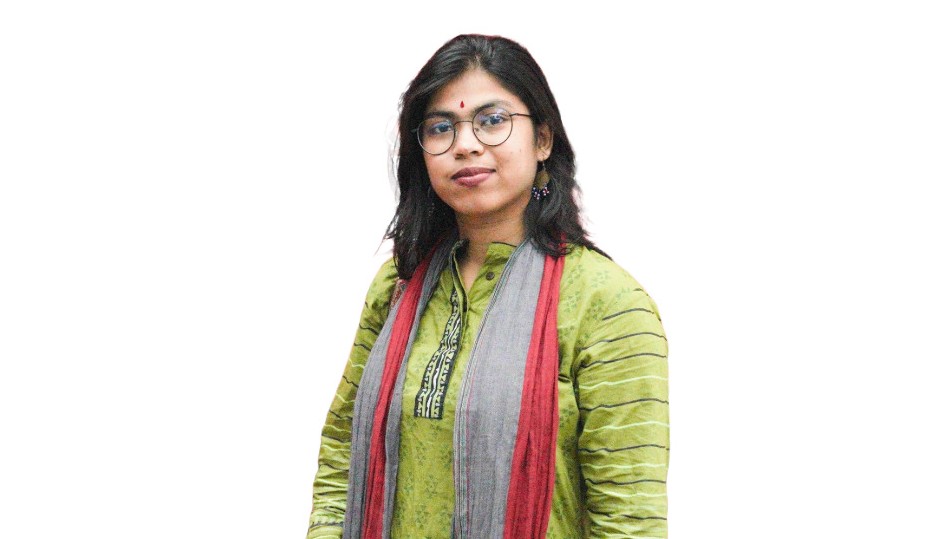One year into the July Uprising, which toppled the regime of autocratic Sheikh Hasina, Nazifa Jannat, a central coordinator of the Anti-discrimination Student Movement and private university student leader, has shared the movement’s successes, challenges faced in its aftermath, and the ongoing fight for democracy with Taufiq Hossain Mobin of Times of Bangladesh.
You fought for change – has the expected change come a year later?
After the fall of fascism, we hoped for meaningful change across all sectors so that Bangladesh could become a peaceful nation. Though the interim government under Muhammad Yunus initiated some reforms to improve governance, real progress remains a distant dream.
In 11 months, despite public support, the interim government has failed to deliver positive change due to inefficiency and irresponsibility. Many advisers, while attending events and speaking of reforms, lacked even basic knowledge of their own ministries and responsibilities.
Instead of establishing effective governance, they focused on seminars and ribbon-cutting ceremonies. This is the result of placing incompetent people in power—those unable to meet the nation’s urgent needs.
Worse still, some revolutionaries who once fought the system have now aligned with power brokers, seeking personal gain.
Conflicts have emerged among the student activists who once stood united. As a central coordinator, how do you view these divisions within a movement that initially appeared unified?
The students in the movement were politically inexperienced. When the quota protest began, no one imagined it would grow to a point where forming a political party or organisation would become necessary. Building such an organisation requires a clear vision, ethical grounding, and political understanding—qualities many students lacked.
The platform Students Against Discrimination, formed after the 5 August changeover, had no democratic leadership selection process. Leaders were chosen based on personal connections rather than competence, leaving out many capable individuals with genuine political insight. This exclusion created frustration and division.
The student leaders were unprepared to create a new political party within just a month. Such efforts demand clarity, experience, and a strong connection to the people they represent—things they lacked.
Another issue was the emergence of a “lumpen” mentality among some leaders. In their inexperience, they began seeing politics as a path to fame, power, and wealth, forgetting that politics is about responsibility and representing people.
I witnessed some who once stood fearlessly on the frontlines start engaging in corruption or using their positions for personal gain. This moral decline, and the shift from collective vision to personal agendas, was deeply disheartening.
The July Movement began with a call for quota reform but soon grew into a mass uprising. What caused this shift in momentum?
We began by demanding quota reforms, not a revolution. But state-sponsored violence—killing students and attacking protesters through the Chhatra League and police—radicalised the movement.
By the time we issued the Nine-Point Demand, it was no longer just about quotas; it was about ending authoritarianism. The turning point came when Sheikh Hasina dismissed us with, “Keep protesting until you’re tired.” Her arrogance showed the regime wouldn’t listen, and the movement surged from there.
As a coordinator, what were the biggest challenges you faced?
The energy was incredible, but the movement lacked structure due to the inexperience I described earlier.
There were also divisions within the movement. Groups like PUSAB (Private University Students’ Association) tried to take control of decision-making without being truly accountable. They copied our plans, posted them as their own, and created parallel leadership structures.
Private university students played a crucial role in the movement, yet there are claims they were sidelined afterward. What is your view on this?
Private universities lacked the political legacy of institutions like Dhaka University, and most of their students joined the movement spontaneously, without strong political roots. After the revolution, public university leaders with established networks dominated key positions.
However, the July uprising has changed this dynamic—private university students are now more politically aware and are demanding greater representation in student unions and policy discussions. This marks a new chapter for private university politics.
Where were you on August 5, when the government collapsed?
The streets were chaotic, with police and military patrols standing idle. By midday, rumours spread that Sheikh Hasina had fled. I joined a rally to Gonobhaban and saw crowds breaking in—some celebrating, others looting.
I felt conflicted. Yes, we had won, but watching people smash furniture and take souvenirs was disturbing. I shouted, “This isn’t victory—this is our house! Why destroy it?” But the crowd was euphoric, not thinking long-term.
That day revealed a hard truth: revolutions don’t automatically create democracy. Overthrowing a dictator is one thing; building a just system is another.


